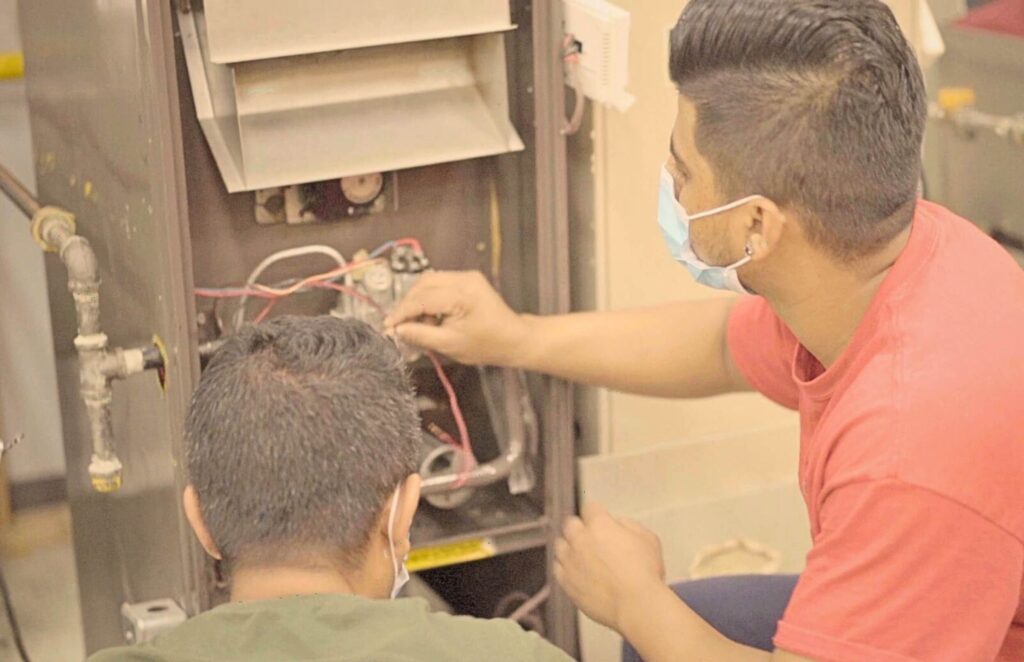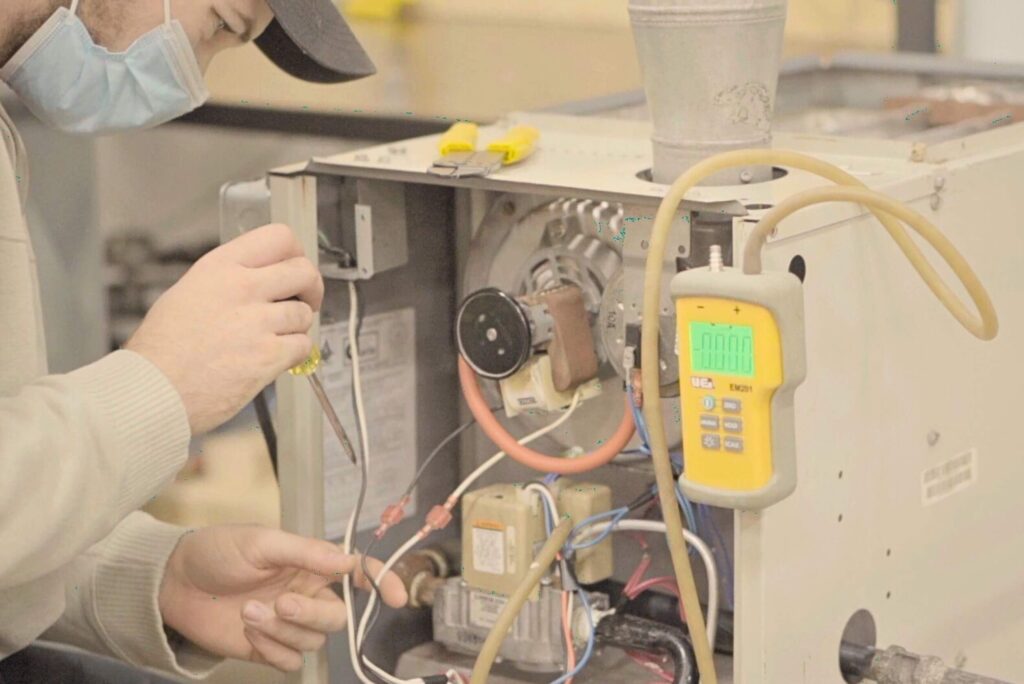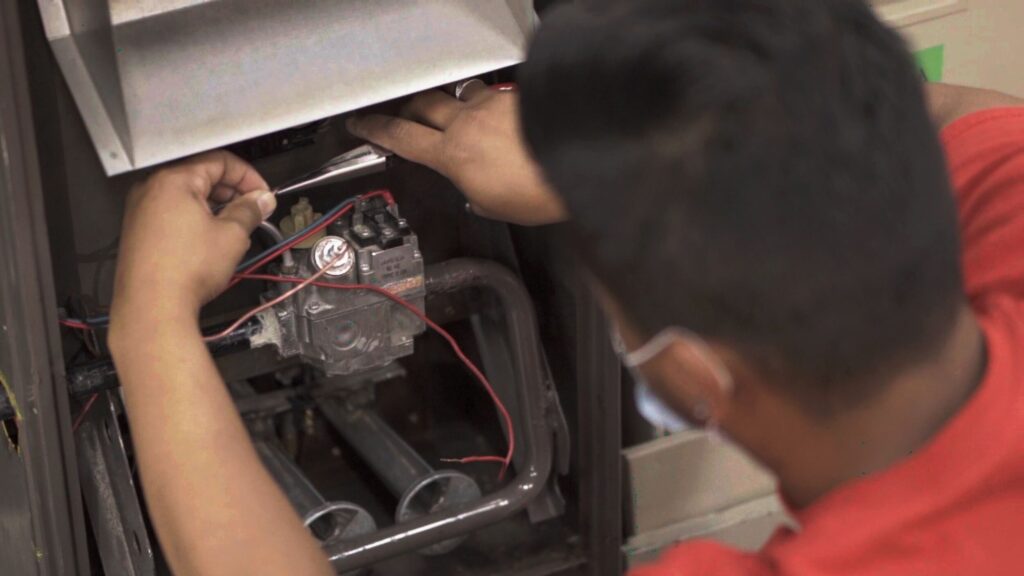
Traditionally, Heating, Ventilation, and Air Conditioning (HVAC) professionals are known for playing an integral role in maintaining the comfort and safety of indoor environments. Yet, the HVAC field is vast, with many career paths beyond traditional settings. These days, being an HVAC technician means not being limited to indoor or residential spaces alone.
HVAC training graduates possess a skill set in high demand, thanks to the essential nature of climate control in residential, commercial, and industrial spaces. Here, we explore three interesting non-traditional work settings where HVAC training graduates can apply their skills and knowledge, each offering unique challenges and opportunities for career growth.
1. Make an Impact on Environmental Conservation in Renewable Energy Sectors
The push towards sustainability and renewable energy has opened new avenues for HVAC professionals. In this sector, HVAC technician training graduates can work on integrating heating and cooling systems with solar panels, wind turbines, and other renewable energy sources.
This environment is about installing or repairing traditional systems and innovating and working on the cutting edge of eco-friendly technologies. Professionals in this field have the opportunity to contribute to the development of green buildings and energy-efficient homes, making a tangible impact on environmental conservation and energy independence.
2. Industrial and Manufacturing Plants Provide a Stimulating Work Environment
HVAC specialists encounter complex and wide-ranging difficulties in industrial settings that are absent in residential or commercial contexts. To maintain the integrity of the items being created and the safety of the workers, manufacturing plants and other industrial facilities heavily rely on sophisticated HVAC systems to regulate environmental conditions. These systems must be designed with large-scale area ventilation and temperature control within strict parameters. In these settings, regulations such as this are central to the specialized manufacturing processes within the facility.
To succeed in this field, budding HVAC technicians must thoroughly understand industrial operations. Armed with insights from their completed HVAC technician courses, they must understand how differing environmental conditions might affect various manufacturing phases and how crucial it is to set up HVAC solutions to satisfy these requirements.
Working in such environments can demonstrate one’s capacity for large-scale system design and management and advance technical competency and problem-solving skills. In addition to technical expertise, the position requires the ability to think creatively and to guarantee that HVAC systems seamlessly integrate with the particular needs of every industrial process.

3. Explore Healthcare Facilities Opportunities After HVAC Technician Training
Healthcare facilities like hospitals, clinics, and research laboratories demand exacting climate control to uphold sterile conditions and guarantee patient comfort. This presents a distinct set of challenges for HVAC professionals. Professionals who work in these environments are tasked with installing and maintaining systems that regulate temperature, humidity, and air purity. Given the high stakes of healthcare settings, HVAC technicians and engineers in this field must navigate and comply with rigorous regulations and standards to ensure their systems support the facility’s vital operations.

This setting offers HVAC graduates technical hurdles and the fulfilling opportunity to play a key role in patient care and safety. Their work directly impacts the healing environment, contributing to the well-being of patients and the efficiency of healthcare processes. This sector uniquely blends engineering and technology challenges with the human aspect of healthcare, making it a profoundly rewarding field for HVAC professionals dedicated to making a difference.
Are you interested in an HVAC technician career?
Contact NATS for more information.





